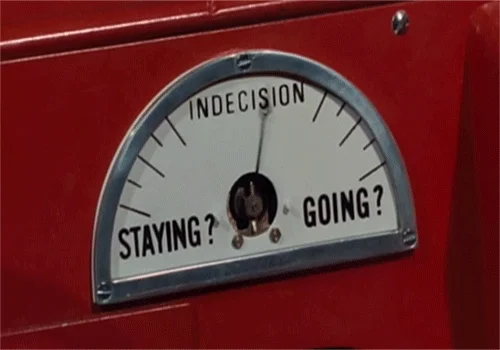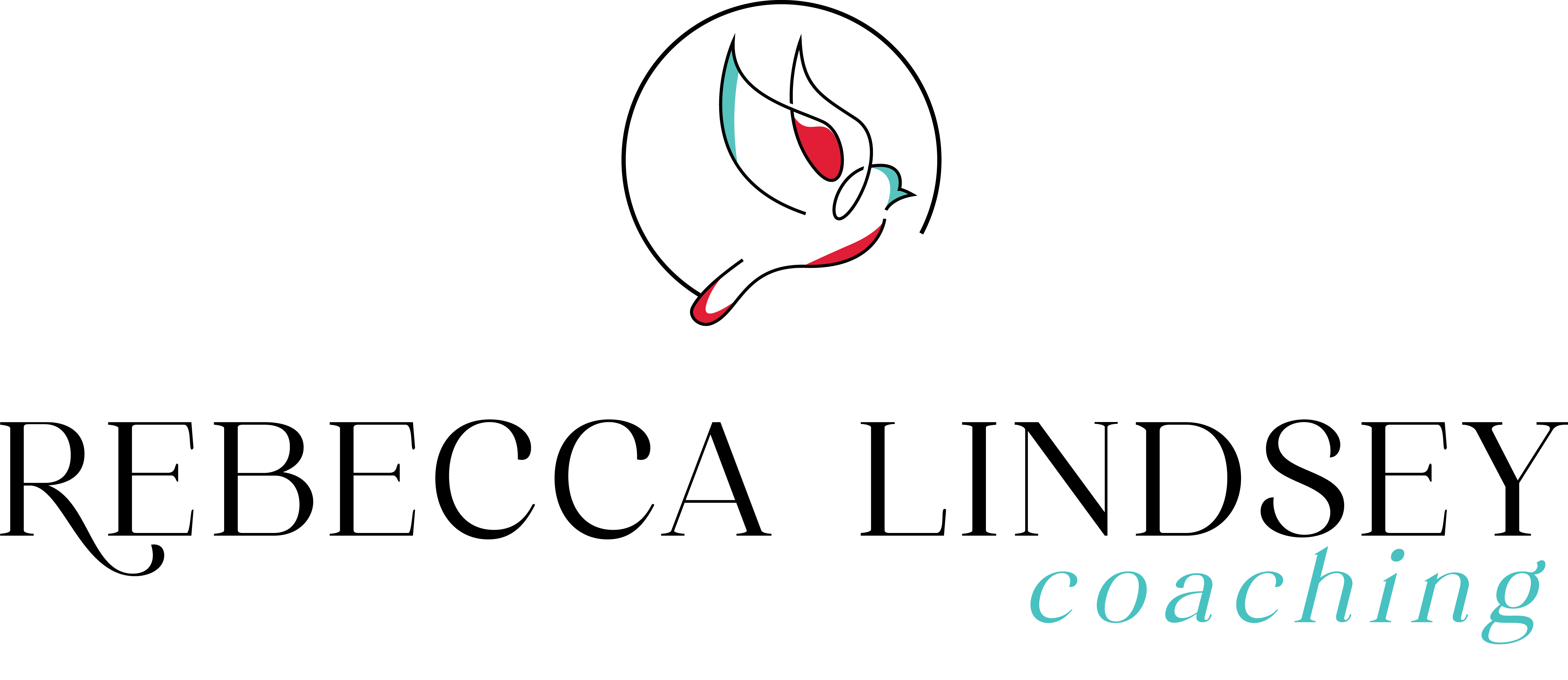Should I Stay or Should I Go?

You’re unhappy in your marriage and the idea of leaving is constantly on your mind.
You second-guess yourself – and each day brings a different answer to the same question – should I stay or go?
Being in your marriage feels like standing in the middle of a tug-of-war, with one side pulling you toward staying, rooted in shared memories and commitments; while the other side pulls you toward leaving, driven by the need for personal happiness.
Some days you’re convinced you should stay and other days you are certain you will go, leaving you feeling stretched and torn, unable to move in either direction without losing something important.
On the one hand, you’re worried about what will happen to your financial security if you leave. On the other hand, you’re worried your mental health is at serious risk if you stay.
You’re torn between the fear that leaving will negatively impact your kids and the fear that staying could teach them unhealthy ideas about marriage.
You’ve listened to podcasts, read books, gone to therapy, and sought advice from friends and family. You’ve tried improving your communication and things are no better. You’ve even made a pros and cons list, yet you’re still unsure whether to stay or go.
This isn’t how things were supposed to be. You promised yourself you’d do things differently from your parents. This isn’t the life you wanted for yourself or your family. On good days, you feel like roommates – on bad days, you are ready to pack your bag.
It’s time to decide if you can continue in this relationship. It’s time to make the decision – should I stay or should I go?
You know you can’t keep living with this decision weighing on you.
You long to make a confident decision whether to stay or go, even if it’s difficult.
The Link Between Indecision and Relationship Conflict
If you’re in a long-term relationship with a lot of unresolved conflict, your nervous system is likely out of balance and is affecting your thinking and decision-making. In fact, depending on the level of dysregulation you’re experiencing, you can be physiologically unable to think clearly and function at your best.
Here are signs that your nervous system may be out of balance:
- Difficulty making even the smallest decisions
- Self-doubt
- Feeling of helplessness
- Attempting to control the outside world
- Feeling distant from friends and family
- Loneliness
- Outsized agitation when life isn’t going your way
- Difficulty seeing the big picture
- Poor sleep
If you find yourself nodding along with the above list, your nervous system is likely dysregulated. You may be making decisions with unconscious thoughts and beliefs and your emotions are likely being suppressed.
Why is This Decision so Hard?
Nervous System Regulation
Decision-making is an executive function in the brain. When you’re upset, your nervous system, which includes your brain, becomes unbalanced and the way you see the world and make decisions can be distorted and you are unable to reliably reach logical conclusions.
Automatic Thoughts
It’s tough to make good decisions when you don’t question your automatic thoughts. These thoughts happen without you even thinking about them, and when you don’t stop to question them, you just accept them as true. You might look at your situation, feel stuck, and ask, “Why can’t this change?” In a way, you’re misleading yourself without even realizing it.
Have you ever considered how much of what you do–how you act, how you approach challenges–is dependent on the conditioning you received from others. Why do you accept some beliefs and reject others?
The truth is, almost everything we do, even small things, is influenced by the way we’ve been conditioned to think and act.
If all your actions are influenced by this conditioning, then the results you get in life are also tied to the thoughts and beliefs stored in your subconscious. And for most of us, these beliefs were shaped by other people.
What if tomorrow, you could uncover those hidden beliefs and make conscious choices about which ones to keep, upgrade, or let go of completely? Who would you be?
In the end, you become what you think about most.
How can you make this potentially life-changing decision when you are unaware of the conditioning shaping your thoughts and actions?
Emotional Attunement
It’s hard to make decisions when you aren’t tending your emotions.
Our culture teaches us to privilege our intellect over our emotions. To take it a step further negative emotions are often outright rejected in favor of a ‘pull-yourself-up-by-your-bootstraps’ narrative.
When you deny emotions, you lose valuable information – anger wants to protect and defend, sadness hopes for comfort, fear longs for safety.
When you suppress your feelings they come out sideways, often in the form of anxiety.
Decision-making is not thorough when you ignore your negative emotions.
What is Needed to Make a Confident Decision?
In order to make a decision that you feel confident and at peace with you need:

With these three elements in place, you gain confidence in your decision whether to stay or go, even if it’s difficult. You will honor your self interest and feel proud of your assertiveness and decision making skills.
About Me
I’m Rebecca and I know what it is like to be paralyzed by the decision of whether to stay or to go in my marriage.
In my 20 years of marriage, we rarely fought. To keep the peace, I kept my thoughts and emotions to myself. I don’t say this to blame myself or my x-husband.
At the end of my marriage I realized that there was a price to be paid for ‘keeping the peace’: A roomate marriage that swept uncomfortable topics under the living room carpet. Keeping the peace did not equate to a peaceful me, it led to an anxious me.
Individual therapy helped me realize I was not being honest with myself or my husband. I did not want to continue to sweep things under the carpet to keep the peace. The carpet was now a tripping hazard.
I realized I didn’t even know what I was thinking or feeling. I longed to have my insides match my outsides. I made the courageous step to speak up about issues that were important to me. When I did bring up these topics his anger would flare and I would shut down, losing the words I had planned to speak. “This is just how it is”, I thought. “He can articulate his stance and I cannot.”
I had no idea…
- my nervous system was dysregulated,
- negative unconscious thoughts were informing my actions, and
- suppressed hurt and anger were stuck in my body.
This way of being kept me in a victim stance and contributed to an unflinching anxiety under the guise of protection.
The decision to stay or go weighed on me for years. I tried therapy, reading self help books, talking to friends.
I made the decision out of desperation for the anxiety to stop, not with confidence. Making a decision in this way led me to second guess myself even after divorce papers were signed. It also took me longer to move from blame and self-blame to self responsibility.
I wish I had these skills to navigate this decision well. I wish I had these skills of managing my nervous system, knowing my thoughts and tending my emotions so that I didn’t constantly doubt myself, beat myself up and look outside of me for answers.
I’ve built these skills over years and they allow me to discern what I want and speak up for it. These skills allow me to have a healthy new relationship. I know I can make decisions in the best interest of all and I know these skills can help others at this same crossroads
The Invitation
Individual support in getting these elements in place so that you can feel confident in making a decision about your future.
During our time working together, your nervous system will start working with you instead of against you, you’ll gain clarity and confidence in this most difficult of decisions as you investigate your thoughts and beliefs. By tapping into your emotions, you’ll find deeper support in trusting your inner wisdom.
In order to gain the skills in these three areas and make a confident decision at the end of 8 weeks, here’s what you’ll receive:
- Video library giving the 3 Element Foundational education and practices to start to build these skills
- Weekly 1:1 Coaching sessions on Zoom to provide personalized guidance as you learn and incorporate the 3 Elements into your decision making process (50 minutes each on Zoom)
- Email / Text Support– I respond once daily Monday to Friday
I know how hard it is to be weighed down by this decision…. And I want you to know there’s a way forward to find peace in your decision. If it’s a fit I’d like to support you.
Price
$1,200
My Privacy Policy for Your Peace of Mind
Rest assured that any information you share with me, your coach is handled with the utmost care and respect. Confidentiality is a cornerstone of our coaching relationship, ensuring that everything we discuss remains strictly private. This safe and secure environment allows you to express yourself openly and honestly, knowing that your personal information is protected at all times.
I know how hard it is to feel stuck in indecision. You can develop greater skill in making this difficult decision, which will help you move forward and find peace.
You long to make a confident decision whether to stay or go, even if it’s difficult.
This May Be a Good Fit If…
You are willing to do homework and practice skills 10-15 minutes per day.
You take responsibility for your role and the choice you make in your relationship.
You believe that you can change. You’ve taken in different perspectives in the past and you’ve changed your mind.
This May NOT be a Good Fit If…
You are not willing to take responsibility for the role you play in your relationship challenges.
You want to work with someone who did not leave her marriage. I learned much of what I want to share with you after my divorce. Would my marriage have been different had I learned about how the nervous system, thoughts, and emotions work earlier in my marriage? Maybe. Maybe not. What I do know is that I am NOT repeating my marriage in my current relationship and for that I am very grateful.
You want overnight change. These changes take practice. They require sustained effort and diligence. This is a lifestyle change. Sustaining these skills will have ripples through your life.
You believe people do not change.
You are experiencing domestic violence. Click here for a list of resources.
